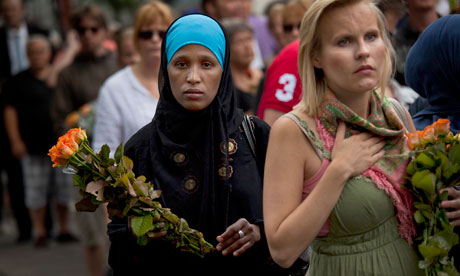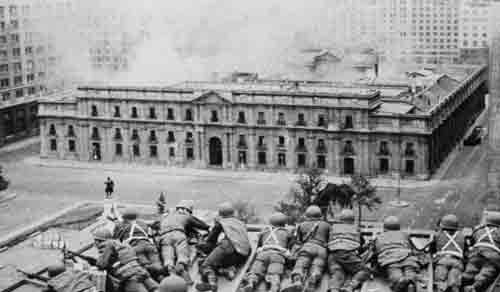When I was in High School in India I felt I was untouchable. Not in the sense that Gandhi used the word indicating that I occupied a particularly low strata of the high school hierarchy or in the conventional sense of the word whereby I ruled the social roost unchallenged (so to speak). No, by untouchable I mean that despite all that I experienced and all that happened around me, I and my school mates were safe from harm.
When people think about harm in relation to high school kids, what first comes to mind is smoking, drinking and drugs. I personally avoided smoking, drinking or drugs while others didn't and though some made regretable decisions in this regard, I would argue that these weren't the most potentially harmful things of studying in an isolated high school deep in the Maharashtran countryside.
While some may contend even now that the school administration was too intrusive into the students' personal lives, for the most part and in comparison to other educational establishments, the school fostered a laissez faire approach to regulating the students' habits and interests during my time there. People reacted to this in different ways, some felt discomfited by a system that is less liberal than the one they are used to while some became intoxicated with newly found freedom away from watchful guardians and many others were somewhere inbetween. But in the end, everyone went through it unscathed and are the wiser for it. In fact, it probably gave them an edge in terms of maturity over their peers at University/College since drugs, alcohol and smoking are even more part of life there and it would be the first time that they were experiencing such freedom.
However, I think, it was the very place we lived and traveled in that could have been the most exceptional threat to our health and safety. I say this not to disparage the school or the country that my school mates and I were able to spend two amazing years in but rather to honestly reflect the kind of dangers we faced, sometimes knowingly but often unwittingly. Located roughly forty kilometers outside of Pune, getting to and from the school itself was often an adventure. Unless you were willing to shell out large sums of money to a smirking Hanuman for a private jeep you were at the disposal of the Maharashtra State public buses, public jeeps or even kind motorcyclists/lorries/tractors/cow carts. I vividly remember my journey to Pune Airport from my school on the day my mother arrived in Pune from Dhaka. I started my two kilometer walk down the hill where the campus was located at 7am and continued on to the main road towards Paud for a good few kilometers before I managed to hitch a lift on the back of a motorcycle being driven by Shankar, one of our school librarians. At Paud, I had to wait for the better part of an hour to catch a public bus to Pune with the journey itself taking close to an hour and a half. By the time I arrived in Pune, dusty, grimy and drenched in sweat I had little time to think about trimming my months-old beard or my dishevelled hair and rushed by auto rickshaw to the airport to pick up mother. And this was a regular commute just within close proximity of the school! When we traveled further afield - and I believe we had more opportunities to do so than most schools and definitely the greatest scope for independent "planning" - we often found ourselves confronted by trains overturning in front of us, bombs exploding on train tracks, buses frequently colliding on midnight journeys and the ever present dangers of trans-state hitch-hiking! And I haven't even spoken about the dehydration, diarrhea, dengue or viruses that are invariably caught by students or the inherent dangers of the activities that the students indulge in like skiing in the Himalayas. (I was lucky enough to do the latter Yet, not only did we brush this off as a matter of course we sneered at anyone who pointed out the dangers of travel and chastised them for not experiencing the 'real' India.
It was also with a mixture of resignation and gallows humour that we accepted the realities of living in that part of India. On the one hand, with improved biodiversity on campus larger and larger creatures began appearing on campus from enormous, poisonous snakes to two feet long monitor lizards. On the other, we faced continuous political pressure from the more militant branch of a far right Hindutva group, the Shiv Sena for our alleged immoral practices and harmful western influence on the surrounding villages. Natural calamities occured, fiery protests and hartals raged, bombs went off, Naxalite violence continued throughout India but somehow we managed to avoid the brunt of all of it. This feeling that we could never really be touched was accentuated when after I graduated I heard of how former school mates of mine were able to, through the narrowest of margins, avoid death or injury during the German Bakery blasts in Pune and the Mumbai Attacks at the Taj Hotel, Leopold's Cafe and Victoria Terminus. All of them were frequent haunts of students from my school, but somehow they were able to get through with only mental and emotional scars. When I heard that a Bajan friend was able to survive being hit off a train when struck by a telephone pole, I really felt, that as a first year of mine put it, "Allah himself had a hand in monitoring, administering and protecting the school."
Yet now, with the death of two students in quick succession, one in the US and the other in Uganda, that aura of untouchability has diminished. Our lives can get cut short and noble ambitions and aspirations can be crushed abruptly. I know I am stating something trite and obvious, but at this moment that is all that comes to mind. They were young, from very different backgrounds but full of passion regarding the causes they believed in. I didn't know one of them at all (Sylvia), so I prefer to talk about Pema. I wrote on his FB wall:
"RIP Pema Tibet Norbu. In your young life, you've affected many and are remembered far and wide. Even on a bus in England, I met a Tibetan who knew you and Tenzin and only had the nicest things to say. We shared a joint courtyard in first year, sometimes sat at the same cafeteria table and even played a basketball game or two together but it will always feel that we never got to speak to each other enough. My condolences to your family and your many friends spread across the world who are thinking about you now."
If i'm perfectly honest to myself, I'm obviously shocked but I can't really grieve over this because I never knew him very well and didn't speak to him more than once or twice since graduating. But on the other hand I feel this deep sadness about the fact that the world lost a good man with an honest heart and noble aspirations, whose face seemed prematurely weathered by his tumultuous life but was cheerful nonetheless. And of course I'm seething with the injustice of the fact that bastards like Rupert Murdoch and HM Ershad live to a ripe old age while this benevolent person who might have done something good in this world, however small, died in a smoldering car wreck.
But this has been an eye-opening month for prematrure deaths. Days before Pema's death, a massacre occurred in Oslo. First there was a bomb blast in the city itself near Norway's central government buildings and that was followed by an atrocious and scarcely believable shooting of 14-18 year olds on an island in close proximity to the city. The extinguishing of such lives is itself despicable and I can only think of the loss that this is to mothers and fathers across the country.
 |
| Mourning Parents |
Furthermore, it is also a loss to the future of the country as these politically active, intelligent teenagers would have gone on to the upper echelons of government and industry in Norway and helped keep the ignorance and intolerance of people who think like the Oslo terrorist at bay.
We the living are never respectful enough to the dead. Rest in Peace Pema and the many others whom I don't know.
To round off this long, bleak, circuitous and often incoherent blog I am going to provide a link to an excellent article on an oft-overlooked aspect of cricket: the psychology of players. Are cricket players more pre-disposed to depression than other sportsmen or the average person? And is it possible that the game itself attracts people who are prone to mental illness? These questions are addressed lucidly by a current Tasmanian batsman, Ed Cowan: <
http://www.espncricinfo.com/magazine/content/story/524905.html?cmp=fbc_updates>
31 July 2011
Berlin














